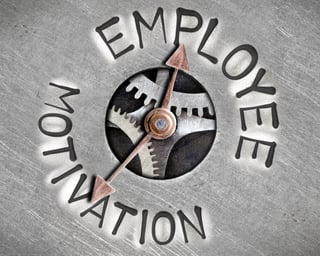
8 Tips to Prevent Your TPA From Frustrating Good Employees
 The Workers’ Comp service industry would have employers believe that the best Workers’ Comp claim handling outcomes require services of the “best” insurer, TPA, PPO and other service providers. The “best” process is defined primarily on reporting claims with limited-to-no lag time.
The Workers’ Comp service industry would have employers believe that the best Workers’ Comp claim handling outcomes require services of the “best” insurer, TPA, PPO and other service providers. The “best” process is defined primarily on reporting claims with limited-to-no lag time.
In reality, the most powerful forces dictating claim outcomes have nothing to do with service provider or employer-to-TPA lag time. The most powerful forces lie within the attitude of the injured employee.
The Influence Employees and Service Providers Have on Positive Outcomes
Service providers such as TPAs cannot develop positive outcomes alone. Employers must understand that the success of their Workers’ Compensation programs is primarily based on the mindset and attitude of their employees.
1. Most every WC claim that turns out “good” involves a motivated employee with the appropriate attitude who respects their job.
2. Most every WC claim that turns out “bad” involves an unmotivated employee with an inappropriate attitude who lacks respect for their job.
Service Providers do have influence, but this is not good news as said influence hangs precariously in but one dangerous direction, summed up as follows:
1. No service provider can make positive an employee’s poor motivation, bad attitude or lack of respect.
2. An inept service provider can make negative and squander an employee’s otherwise great motivation, attitude, and respect, thereby creating a “bad” claim outcome.
What about lag-time? The industry has us believe lower reporting lag is at the crux of claim success. This is a statistic TPA’s like to throw back at employers. Employee-to-employer lag time should absolutely be as close to zero as possible. However, the secondary lag of employer-to-TPA is proportionally less important to the degree any employer activates a high-touch early intervention program aimed at first-aid status and positioning for RTW while decreasing claim reports and OSHA log entries. In these programs, employer-to-claims lag of up to seven days does not limit any better influence that the routine 3-point adjuster contact might have provided.
So, as far as service provider influence, my conclusion is decidedly stark: The best service providers are the ones least likely to anger good employees. This is their only real limit of influence. Every other attempt at differentiation is practically meaningless and non-consequential from one service provider to the next. Every other assertion of greater ability to influence outcomes is simply not true.
8 Quick Tips for Preventing your TPA from Frustrating Otherwise Good Employees
#1 Return phone calls
Require that adjusters return employee calls and emails within 24 hours.
#2 Mileage reimbursement
Require that mileage reimbursements are paid within 5 days.
#3 Medical notices
Zero tolerance for “past-due” medical notices to employees for covered medical bills.
#4 No delayed or refused appointments
Zero tolerance for delayed or refused appointments with specialists, PT, diagnostics, and others. All covered referrals are immediately approved to the providers’ satisfaction. (Note: in the current climate, more providers require direct approval from the adjuster).
#5 Compliance
Include compliance with the above 1-4 in at-risk fee scenarios.
#6 Inclusion
Include the designated employer WC coordinator in all important communication and claim milestones.
#7 Respect employer’s post-loss intervention process
Respect the employer’s post-loss intervention process and rise to the response-level necessary when presented a full claim package including days of preliminary work.
#8 No Surprises
Adopt a “no surprises” pact where the adjuster and employer WC coordinator will immediately alert the other to any indications of employee frustration or negativity aimed at the other or the system in general.
Conclusion
Employers must realize that the success of WC claim handling programs relies primarily on the mindset and attitude of employees. The respect an employee has for their employer’s WC program is enhanced by more employer involvement. Respect is vanquished proportional to how quickly an employee is deferred strictly to the TPA. Service providers alone cannot conjure better claim outcomes.


